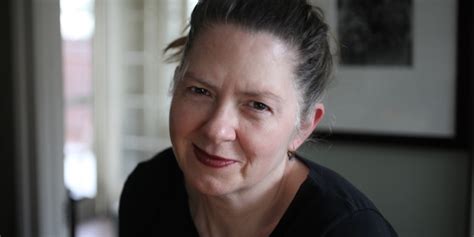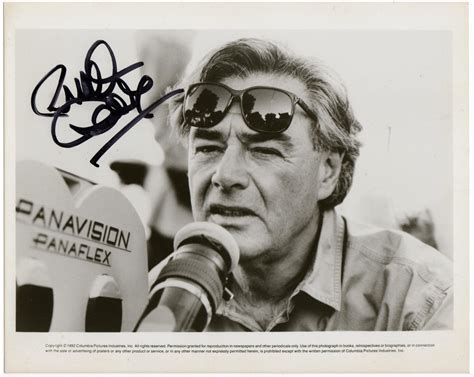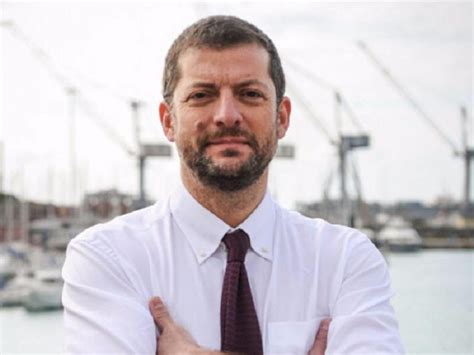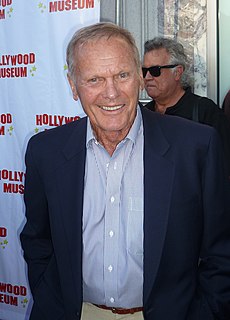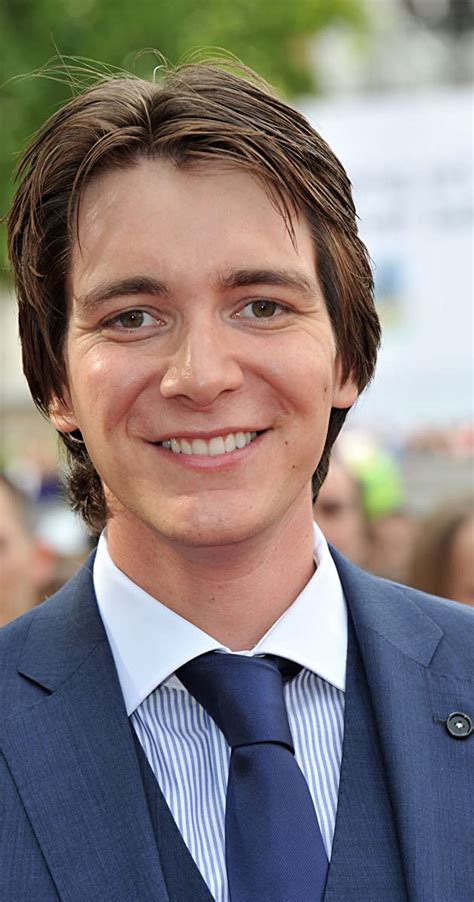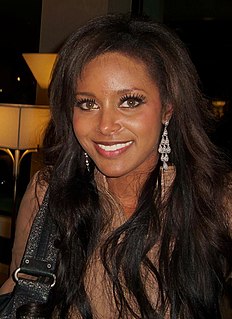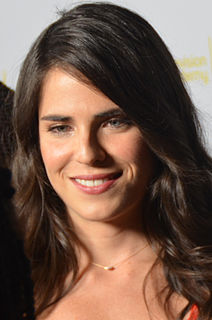Top 746 Studios Quotes & Sayings - Page 13
Explore popular Studios quotes.
Last updated on December 22, 2024.
I know, that trends and all of those things and formulae that calculate what audiences want to see and what audiences don't want to see and various other demographic demarcations are the eccentric and ludicrous prerogative of Hollywood studios. But out there in the real world - by which I mean the rest of the world where we make truthful organic films, independent films unimpeded by interference - it's not about all those sort of calculating what is commercial. It's about wanting to say things and saying them in a way that will get through to people.
American commercial cinema has long been dominated by men, but I don’t think there has ever been another time when women have been as underrepresented on screen as they are now. The biggest problem isn’t genuinely independent cinema, where lower budgets mean more opportunities for women in front of and behind the camera. The problem is the six major studios that dominate the box office, the entertainment chatter and the popular imagination. Their refusal to hire more female directors is immoral, maybe illegal, and has helped create and sustain a representational ghetto for women.
People don't want to pay for pitches. They want to see it. If you hear one more time, "Well, that's execution-dependent." Everything's execution-dependent! If there's something that's going to be a little bit more interesting than The Untitled Slinky Movie, then I think that writers that want to do interesting work and at the same time commercial work need to put it down on paper. So agents and producers that writers are working with are encouraging them to get it on paper because the studios like to see what they're buying rather than just imagine what it could be.
I think this kind of bohemianism doesn't really exist in the New York city anymore - the bohemianism that I was trying to record in Carnegie Hall that completely defined our culture. The people who lived and worked in Carnegie Hall studios, they defined our culture in music, dance, theater, fashion, illustration. It wasn't so much nostalgic as a celebration of that and an acknowledgment of that and saying that it's really important. And it's actually something that is a loss for the city, I think.
I'm always astounded that people know who I am and what I do. I still have a lot of anonymity and that's good. I don't get bothered in restaurants and stuff like that. But when I'm at events that are really geared toward animation fans, they know who I am. And I'm so very pleased and so flattered by it. People are extremely complimentary to me, and that only encourages me to continue to do more really good work. I get paid by the studios, but I know I work for the fans.
Once in a while a good opportunity would come along, like the first 'Playhouse 90 ever to air - working in television afforded me my best opportunities. The (film) industry was going through such turmoil at the time - studios didn't know where to go anymore, they were falling apart, television was there. They didn't know what kind of films people wanted. The European films were making a huge impact because those films wanted real people in real situations.
You always know when one of the first ["Harry Potter" movies] are on TV, because you'll get a text message from one of your friends saying, "How high was your voice?" It's like watching a home movie, in some sense. But you just remember because the audience sees the scenes as they're written, but we remember shooting [the scenes] and all the stories that came around it. Like the Quidditch World Cup in ["Harry Potter and the] Goblet of Fire," it's like the Glastonbury Festival at Leavesden [Studios].
Cody and I had a connection pretty quickly. We were engaged pretty quickly, but my moment where I knew this was definitely the person for me was when Cody asked me on a date to Halloween Horror Night at Universal Studios. Nobody had ever asked me on a date to Halloween Horror Night, and I had never been even though I am a horror fanatic.
I know a bit about his [Sirk] life, but it's more about his style than biography. He was European and came out of a theater background, and could easily be defined as 'Brechtian.' He was expressionistic in his films, and was an example of those intensely intellectual artists who ended up working for American studios, and was handed the Ladies Home Journal and asked to adapt the stories for the screen. He found ways to use his artistry to make them interesting and nuanced, while critiquing American values in the process.
The movie studios, they only like to make - I make a joke, but it's true - if the movie has the word "man" and a number in the title, they'll make it. If it doesn't have that, it's an R-rated raunchy comedy, and that's it. Any other movie that you're going to make is going to be an independent one. So for filmmakers who want to do something other than "man" and a number, it's either independent films or television, which is like the place for real creative filmmakers to go.
There were two recording studios in Bellingham. One was really expensive, a "nice studio." We were at the point where we were young and irreverent. We would scoff at the idea of a nice studio. "Why would you want to go to a nice studio? Oh wow, they have really expensive gear. Ooh, that's really fancy. Well we've got an eight-track. We've got it going on here." Now that we have the resources, we're like, "Oh wow, a nice studio is pretty nice! They do have nice outboards here. It's actually a pretty good place." It's funny how much changes so quickly.
I had written three books [Games of Throne], at that point, and each one of them was better than the other. At a certain point, as the books were doing well, I started getting interest from Hollywood, from various producers and studios who were initially interested in doing a feature film. I met with some of those people and I had phone conversations with some of those people, but I didn't see it being done as a feature film.
The late '60s and the '70s, a lot of this really beautiful equipment was being made and installed into studios around the world and the Neve boards were considered like the Cadillacs of recording consoles. They're these really big, behemoth-looking recording desks; they kind of look like they're from the Enterprise in Star Trek or something like that. They're like a grayish color, sort of like an old Army tank with lots of knobs, and to any studio geek or gear enthusiast it's like the coolest toy in the world.
It's a tough time for screenwriters right now, because fewer movies are getting made. I'm enjoying television so much. It offers opportunities for writers to be in a writers' room and work their way up. It's somewhat easier because there's more of a community. There are so many screenwriters with incredible stories to tell, so I hope there will be some kind of shift in the business where very few types of movies are now made by the studios. There needs to be different budgets for different audiences; not everything having to be a huge opening weekend.
I make the joke, all the time, that if you have the word "man" and a number in the title, like Batman 2, Spider-Man 2 or Iron Man 12, you'll get it made. The kind of movies I make, studios don't make them. I've made a lot of movies, and at Castle Rock, we've made 125 movies. None of them get made at a studio. I've got to scrounge around for money, every time. I just like to tell stories. I'm a storyteller, so I want the most people to see it.
Movies cost so much that studios really try to impose their personality over yours. A lot of times, you can get swallowed up in that and end up making movies that are indistinguishable from anybody else's. One of the things I've always tried to do is to inject myself as much as possible into the movie, so I feel like it's mine. But that also comes from what you choose to do and what you choose not to do. There are certain projects I could have said yes to, and I know exactly how they would have turned out: exactly the way they turned out when someone else did them.
Although all studios are now moving towards digitalization, a foundation in which we draw pictures by hand hasn't changed, so I foresee that we will continue to keep it in the future. After all, we used the digital method based on a conception of expanding and advancing the expression of the traditional animation cel in Steamboy. The first goal of this project was to overcome limitations of camera angles caused by platforms. On that aspect, I won't go back to the traditional method. I hoped to combine the merits of the traditional method of cel animation with the merits of the new CGI method.
We don't believe in limiting access to our product. We believe that making our ticket sales available on as many sites as possible is good for the studios and good for us. We have on any given day 25,000 show starts - five show times at 5,000 screens. We have 1M seats more or less in our circuit. So I have 25M sales opportunities every single day. Why would I want to limit access?
The creative process is a very collaborative process. I know it might seem that way because so much ink is spilled and the media is obsessed with business and numbers and studios... but filmmakers don't think of it that way. We just go off and we tell our stories. It's the same torture that we adore, it's the same torture that our forefathers endured making movies in the golden era of Hollywood. So, from my perspective it's no different, I'm sure, from the men and women who I admire so much who made the earliest movies.
One of the crucial underpinnings of New York as a culture capital is that there are multiple markets. There is not just one art gallery district, there are several art gallery districts. I feel that there should be art galleries and art studios in every neighborhood without exception. They should be integrated into the social and physical fabric of the streets. If we want a lively city, we can't just have high towers and dense constructions, we have to have living organisms of streets and neighborhoods. And the arts are a crucial part of that.
I want to learn something from my atheistic brothers and sisters, even though I'm a Christian. I want to learn something from my right-wing brothers and sisters, even though I'm a progressive. I want to learn something from the elderly, even though I'm middle-aged or tilting toward the elderly. I want to learn especially something from the youth. That's why I spend a lot of time in hip-hop studios.
The industry has changed in big ways. When I started making movies, the studios were not all owned by huge conglomerates, so the decisions were made in a very different way. Over the years, I've watched both the rise and the decimation and fall of the DVD as a portion of where you could generate revenue from making this kind of content. We've seen this change in the balance sheet on the international side of the ledger; it's now a much bigger percentage than it is on domestic, even though movies would have been previously really domestically driven.
I'm so happy and relieved for the indie spirited film world because ... I don't even know if it's indie, it's just alternative cinema that's just different than what the studios are doing and it's a big variety in that category. Everyone always is complaining about the film industry but I think it's important to acknowledge when it's actually a pretty good time when that comes back around. I'd be remiss not to say, "Hey, it's a pretty good era right now for these reasons," and maybe that doesn't last or maybe it does, but I will acknowledge it.
I think it's not an easy task because there's not enough Latino writers that are being given opportunities to write things - and I say this because I've been given a lot of bilingual movies in the past because of my career in Mexico, and they're like, "Oh, it's going to make sense for her to do this." A lot of studios want to hit that demographic, but they sort of do it without starting in the right way, which is having someone who knows the culture, and enjoys the language as well, to be able to write these things.
When I did TV shows and movies, the studios did demographic research. They were shocked to find that my audience isn't just men who are too drunk to turn off the TV after football. It's women, too. I don't know exactly why, other than that I've tried to remain true to myself for all these years. I have gone through a lot, and I've been open about it. Maybe they look at me and can see how you can grow up, have children, continue to be sexy, get married and divorced and, though you grew up poor, live the American dream. I'm very blessed. I'm happy for it all.
I don't think it's possible to teach a person to be an artist. But yet, I'm here, and I suppose this is what I'm expected to do. I teach a course called graphic narrative and one called digital studios, but no matter the topic, the basic principle underlying my "method" of teaching is that a properly prepared artist/creator must simply know everything. Not just how to draw, but how to see. Not just how to use a computer program, but what the word "penultimate" means. And the shape and orientation of a goat's pupil. And where Kentucky and Chile are, at least approximately.

